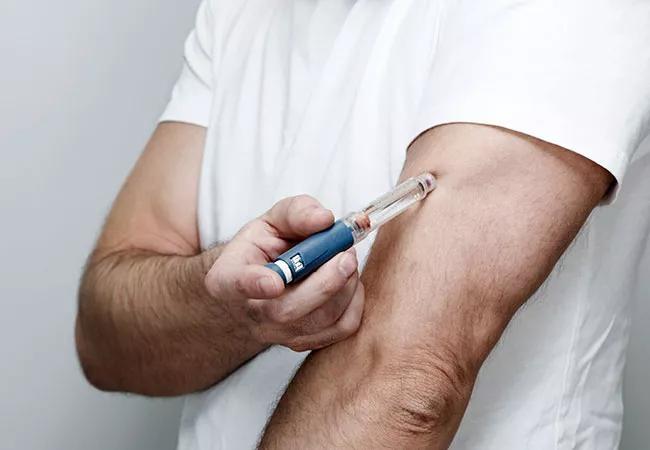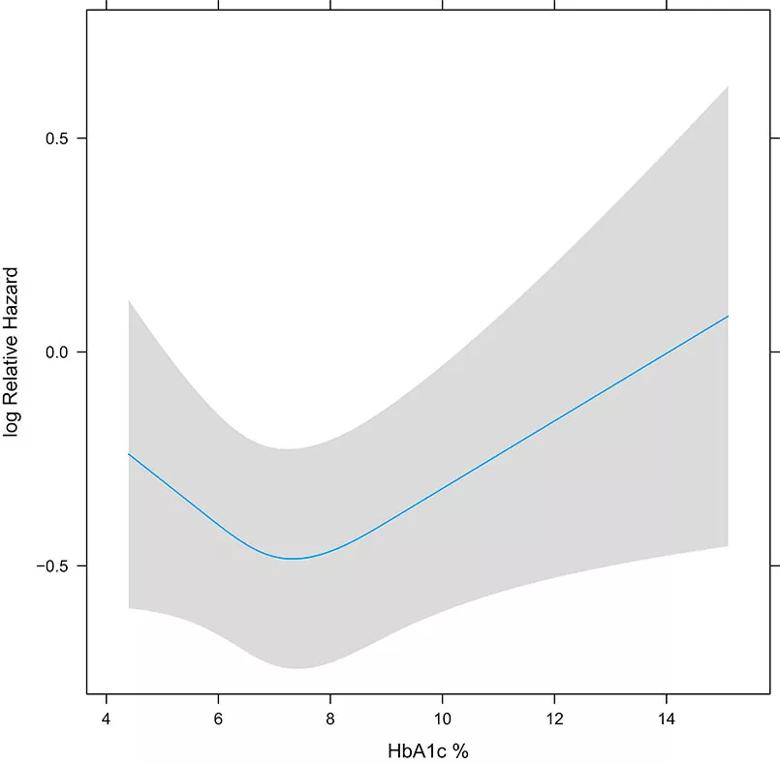The target may be different than what you expect

A new observational analysis of 6,165 patients with diabetes and chronic kidney disease (CKD) shows a target hemoglobin A1c (HbA1c) of 6-6.9 percent minimizes the likelihood of diabetes-related death.
Advertisement
Cleveland Clinic is a non-profit academic medical center. Advertising on our site helps support our mission. We do not endorse non-Cleveland Clinic products or services. Policy
All other factors aside, patients whose diabetes was tightly controlled, as measured by HbA1c levels below 6 percent, had similar risk of death as patients with levels higher than 9 percent, according to the same study.
“This study confirmed for us there really is a sweet spot in HbA1c levels for patients with diabetes and chronic kidney disease,” says Joseph Nally Jr., MD, now-retired Director of the Center for Chronic Kidney Disease in Cleveland Clinic’s Glickman Urological & Kidney Institute. “The further away patients get from 7.5 percent HbA1c in either direction, the average risk for negative outcomes rises significantly.”

Image content: This image is available to view online.
View image online (https://assets.clevelandclinic.org/transform/20c1e2dc-b881-4928-a8e5-150e2339565e/805x-HbA_jpg)
When considered as a continuous variable, HbA1c level was significantly associated with pre-ESRD mortality. The relationship was nonlinear, with very low and high HbA1c levels having the higher risk for mortality and risk being lowest at HbA1c levels of about 7 to 8 percent. (Figure copyrighted by and reprinted with permission from the American Journal of Kidney Diseases.)
Published in the American Journal of Kidney Diseases, the study included a median follow-up of 2.3 years on people with diabetes (both Type 1 and Type 2) who were patients at Cleveland Clinic.
Among the primary reasons that lower HbA1c can put diabetic patients with kidney disease at increased risk of death is that having CKD predisposes patients to hypoglycemia, itself a life-threatening and emergent condition, according to the study.
Dr. Nally says these findings can help providers “educate their patients on the importance of getting to that target hemoglobin HbA1c of 6 to 7 percent when they have kidney disease and let them know of the very poor outcomes that can be associated with levels that are either too high or too low.”
Advertisement
The study, Diabetes Control and the Risks of ESRD and Mortality in Patients with CKD, was conducted by Dr. Nally; Jesse Schold, PhD; Stacey Jolly, MD; Susana Arrigain, MS; and colleagues at Baylor College of Medicine.
Advertisement
Advertisement

Pediatric urologists lead quality improvement initiative, author systemwide guideline

Fixed-dose single-pill combinations and future therapies

Reproductive urologists publish a contemporary review to guide practice

Two recent cases show favorable pain and cosmesis outcomes

Meta-analysis assesses outcomes in adolescent age vs. mid-adulthood

Proteinuria reduction remains the most important treatment target.

IgA nephropathy is a relatively common autoimmune glomerular disease that can be diagnosed only by biopsy

Oncologic and functional outcomes are promising, but selection is key